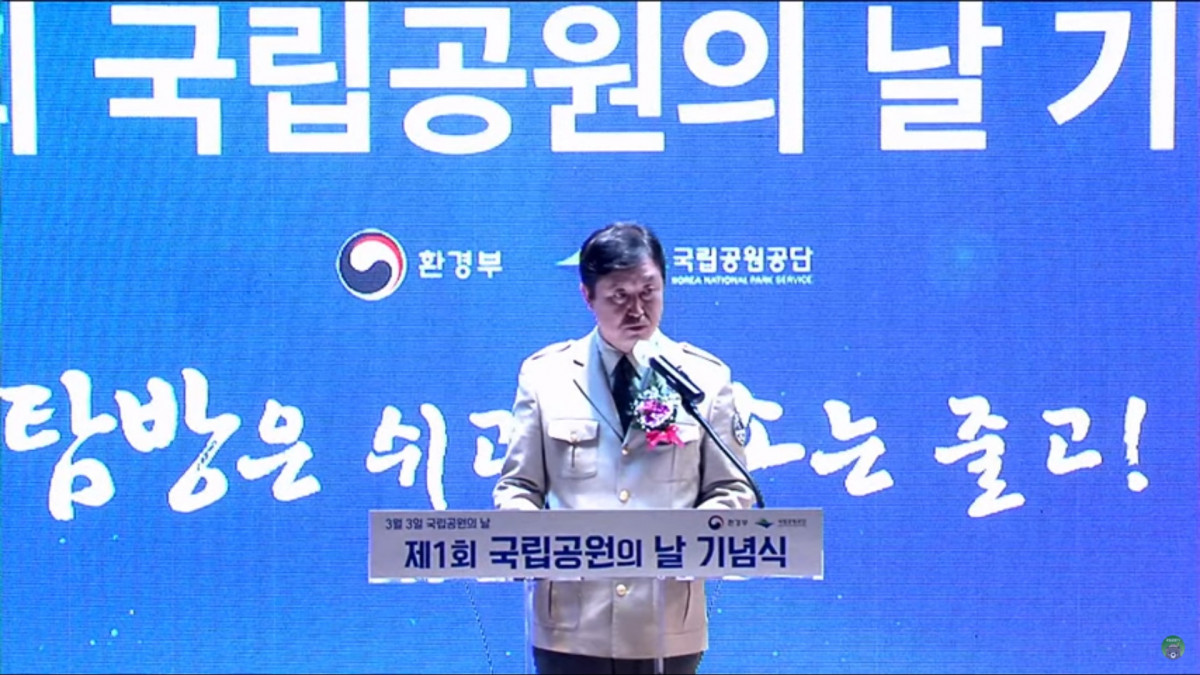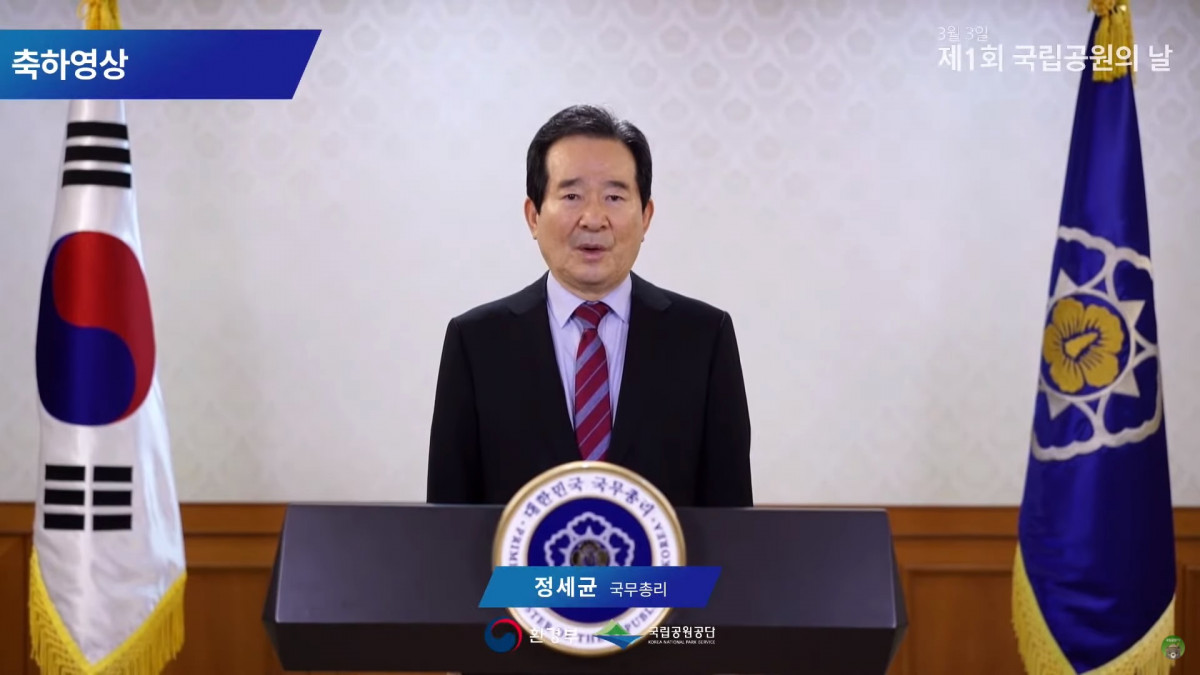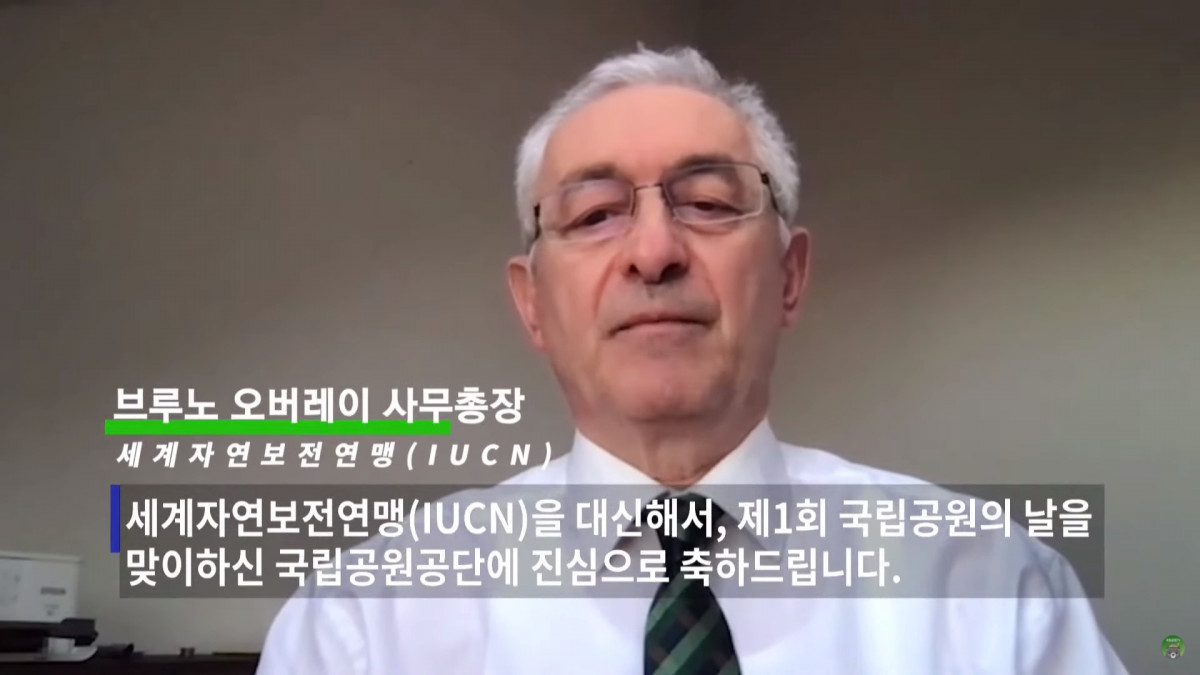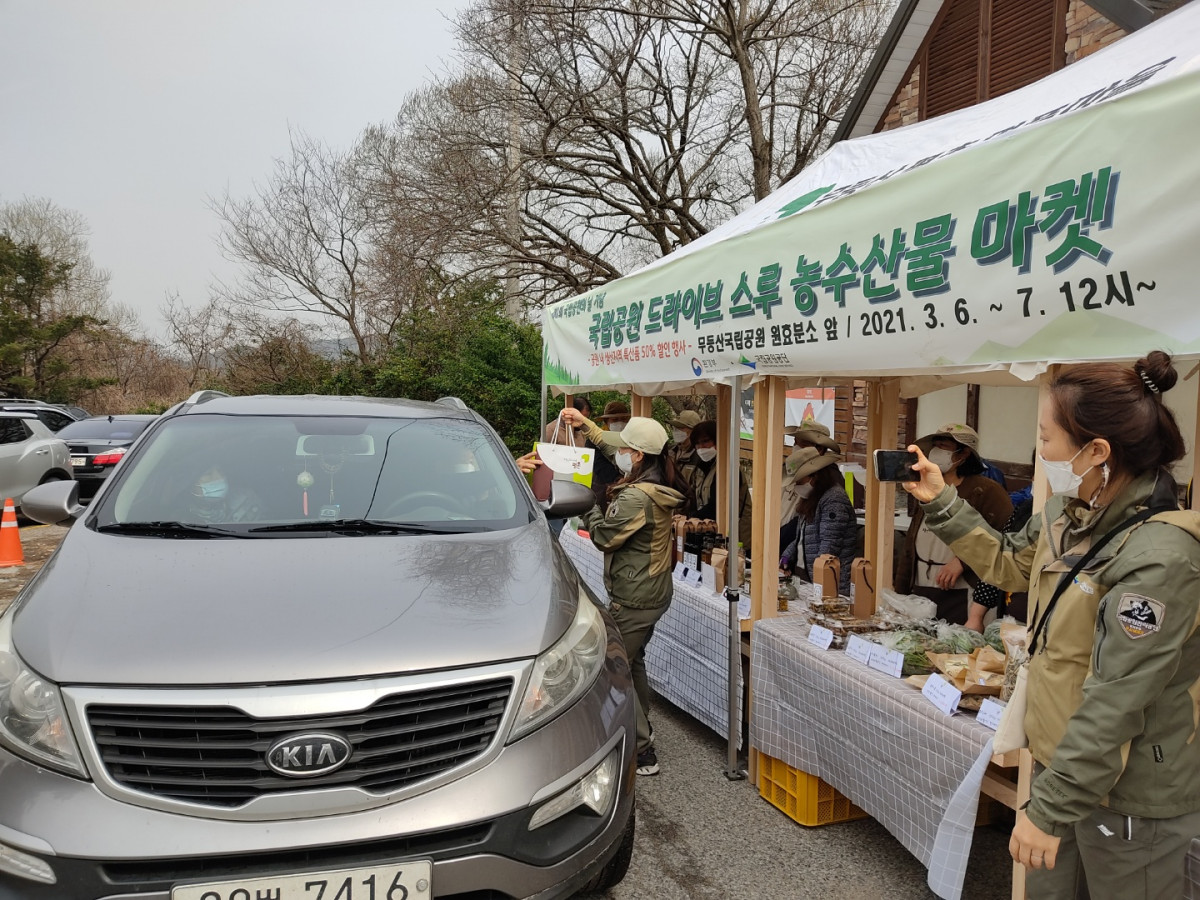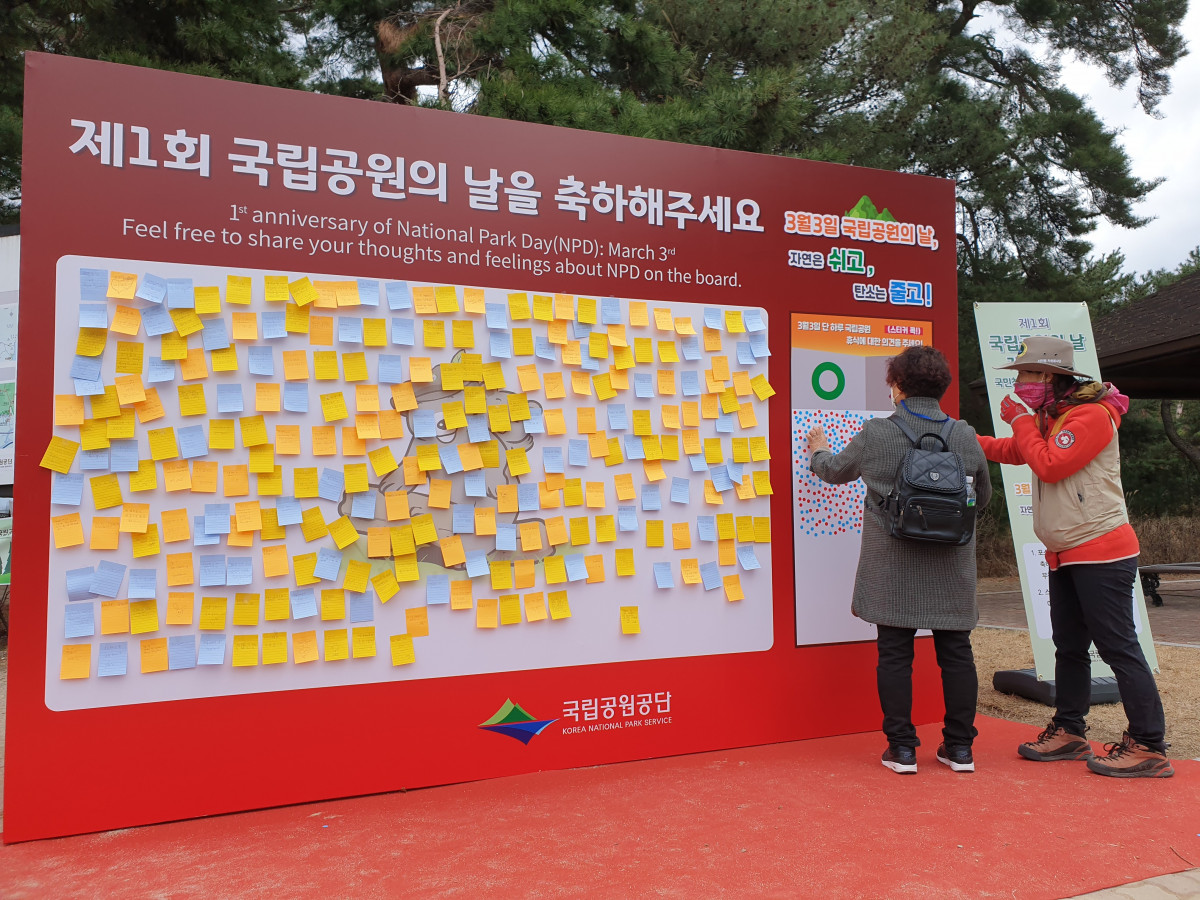Republic of Korea celebrates First National Park Day
The Republic of Korea (ROK) held its first “National Park Day” commemoration at the headquarters of the Korea National Park Service (KNPS) in Wonju City on 3 March 2021. The event was conducted through online, real-time streaming, with the participation of the general public.
National Park Day was designated as a legal anniversary following the amendment of the Natural Park Act in June 2020. To raise public interest in the value of national parks, the date was selected through online voting by the public. The 3rd of March was chosen in recognition of 3 March 1967, when the national park system was first established in ROK.
In line with the government's '2050 Carbon Neutrality Policy’, ‘2035 Carbon Net-Zero’ was selected as the theme of the commemoration ceremony. 2035 Carbon Net-Zero means that carbon emissions from RoK’s national parks will be net-zero by 2035, increasing the value of national parks as carbon sinks.
“National parks are one of the most important carbon sinks, and their value is very high in transitioning to a carbon-neutral society in the future. Through this National Park Day commemoration, we will explore the functions and roles of national parks with the public and provide an opportunity to build a consensus on the importance of them”, said Hyung-Kun Song, the Chairman of KNPS.
Congratulatory video messages were delivered by distinguished guests, including the Prime Minister of ROK, the Minister of Environment of ROK, the IUCN Director-General, the US Ambassador to the Republic of Korea, and representatives from protected area agencies around the world, such as the US National Park Service, Parks Victoria (Australia), Agency of Protected Areas of Georgia, Parks and Wildlife Finland, and Lake Hovsgol National Park (Mongolia). The commemoration also included congratulatory messages from celebrities and the general public.
“National parks must reach out to the people with various and better roles at a time when environment conservation and leisure activities become increasingly important. The enactment of National Park Day embodies the will of the government. On this anniversary, I hope that this will be a starting point for reimagining the future of national parks, and considering the value and importance of national parks”, said Sye-Kyun Chung, the Prime Minister of ROK.
“Parks make a vital contribution to our environmental, social, and economic well-being. They are indeed worthy of celebration and I commend the Republic of Korea for creating this special day dedicated to parks. IUCN has had a long history of collaboration with the Republic of Korea and we are proud to count KNPS as one of our members”, said Bruno Oberle, the Director-General of IUCN.
At a special side event, awards were presented to contributors, and the 2035 Carbon Net-Zero Declaration Ceremony was held. Buddist monk Deok-moon and Professor Woo Jo were awarded the ROK President's Commendation for their contributions to the national park system.
“In times of climate crisis, national parks are becoming more and more important now than ever to reduce carbon emissions by utilizing the carbon-absorbing capacity of natural ecosystems. I sincerely thank the Korea National Park Service for its effort in the front line. The Ministry of Environment will also do its best to cowork with KNPS to achieve 2050 Carbon neutrality”, said Jeoung-Ae Han, the Minister of Environment of ROK.
In addition, KNPS declared the period from 1 to 7 March as “National Park Week”. Many events were held to encourage action on biodiversity conservation and carbon neutrality and to gather opinions from various social groups on national parks.
These included the 'Make Your Own Small National Park', which encouraged the public to grow carbon-absorbing plants. Promoted in all national parks across the country, kits with native Korean plants were distributed. Participants who post pictures of their plants on the KNPS website will receive a souvenir.
For three days during the national park week, ‘drive-through markets’ were also set up in three major national parks (Jirisan, Bukhansan, and Mudeongsan), to sell specialty products produced in the national park villages. The markets received good reviews from consumers and sales revenues reached 72,000 US dollars, following the promotional efforts of KNPS and the clean brand image of the national parks. This initiative also provided an economic boost for residents who had been experiencing difficulties in selling their products because of the COVID-19 pandemic.
Across the country, ‘Talk to the national park’ events were held. A great number of people wrote down their wishes and expectations related to national parks and put these on a bulletin board to share with others. Several surveys were also conducted in parallel with the event, with more than 90 per cent of participants agreeing to “give the national park a rest” by lowering their carbon footprint on National Park Day.
In addition, a debate to commemorate the designation of National Park Day was held on 12 March 2021 in Wonju. This event was conducted to collect opinions from 15 representatives from various social groups, including NGOs, local residents, and volunteers about the importance of national parks in reducing the impacts of climate change and achieving carbon neutrality, as well as the role of KNPS as a professional agency dedicated to protected areas.
For more information, please visit the following sites:
National Park Day event site
https://www.knps.or.kr/portal/knpsday/index.do
Live streaming video of National Park Day event
https://www.youtube.com/watch?v=JipghfsY30Y&t=3006s
KNPS website
About the Korea National Park Service (KNPS)
The Korea National Park Service (KNPS) is a professional protected area management organization established in 1987. It manages around thirty percent of Korea’s protected areas, including 21 national parks. KNPS commits its resources to achieve conservation and sustainable use of national parks and provides support to locally-managed protected areas.


